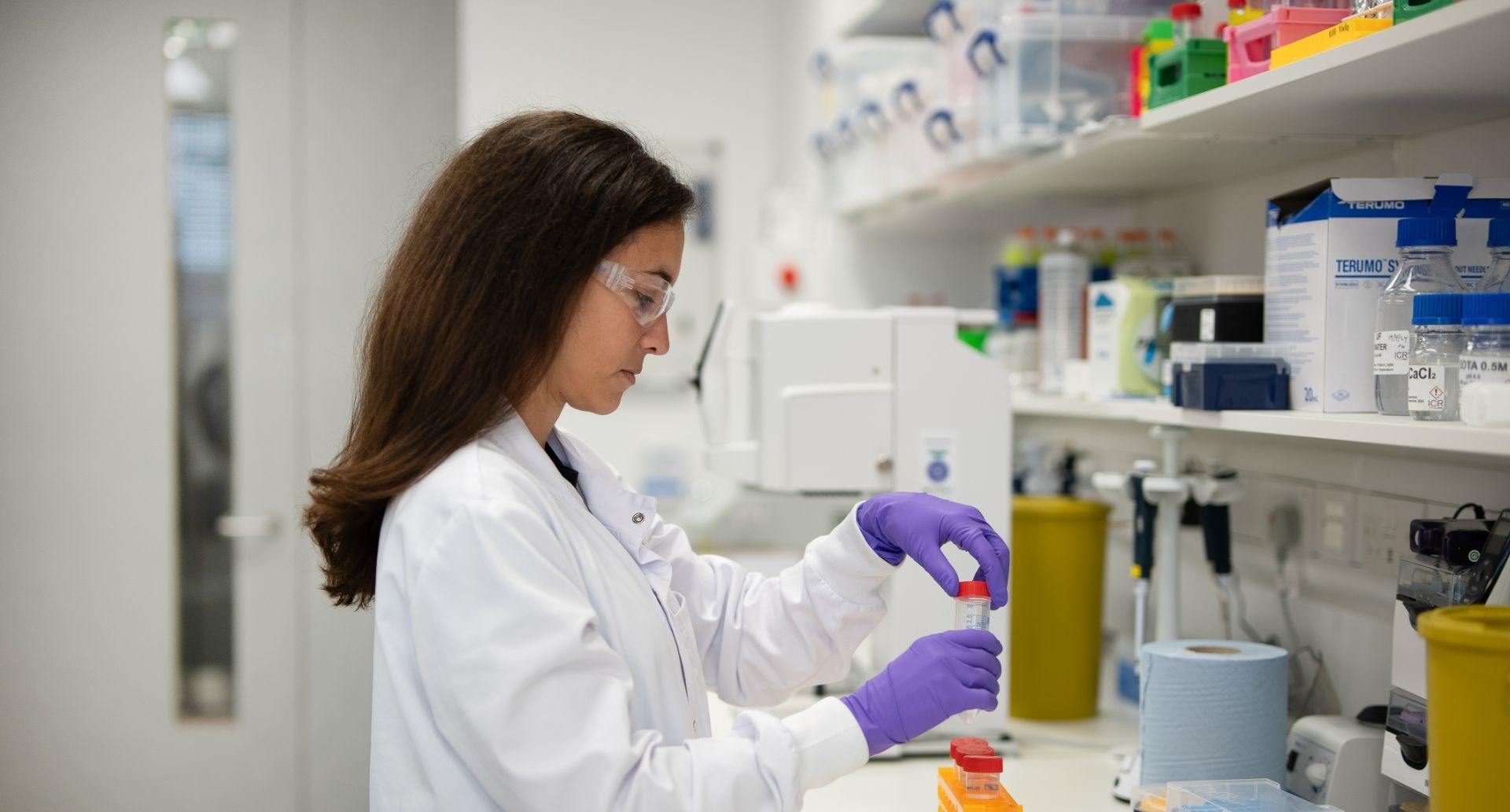Study and Careers
As the UK’s leading academic research centre, The Institute of Cancer Research offers a fantastic work and study environment, great opportunities for development and the chance to make a real difference for cancer patients. We aim to train, recruit and develop the best – with positions for outstanding scientists and clinicians, and the most talented professional or administrative staff.
Studying at the ICR
Our competitive programmes and specialised courses are designed for the next generation of cancer researchers and clinicians.
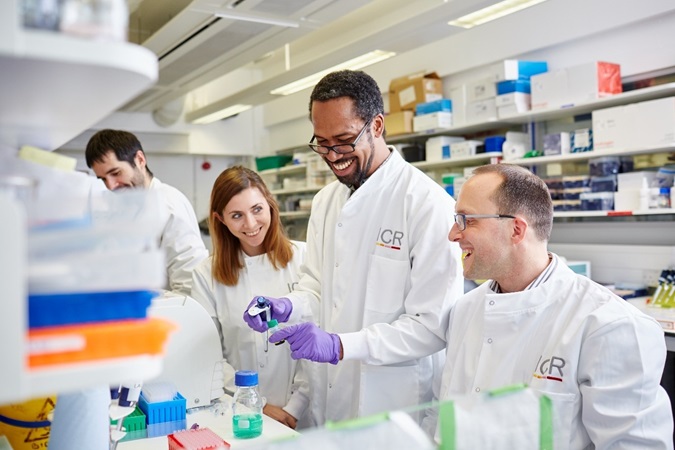
PhD projects and opportunities
We offer 20 fully funded PhD studentships each year. Our main round opens in October, but we also advertise projects throughout the year.
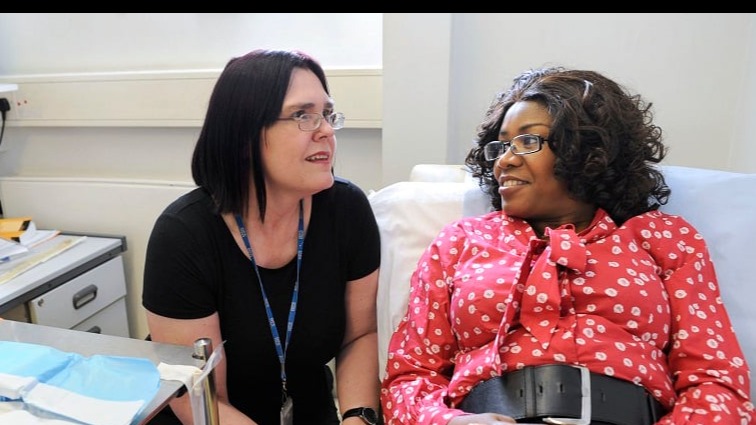
Opportunities for clinicians
At The Institute of Cancer Research, London, we offer clinicians a variety of opportunities – from a taught master's course in Oncology, to fellowships providing protected time for research, and higher research degrees.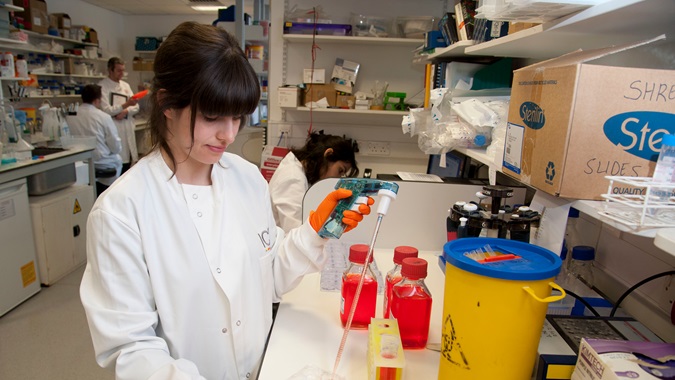
MSc in Oncology
The Taught Course in Oncology is a day-release modular programme designed for medically qualified candidates who intend to pursue a professional career in some aspect of clinical or medical oncology, either as a clinical academic or a clinician.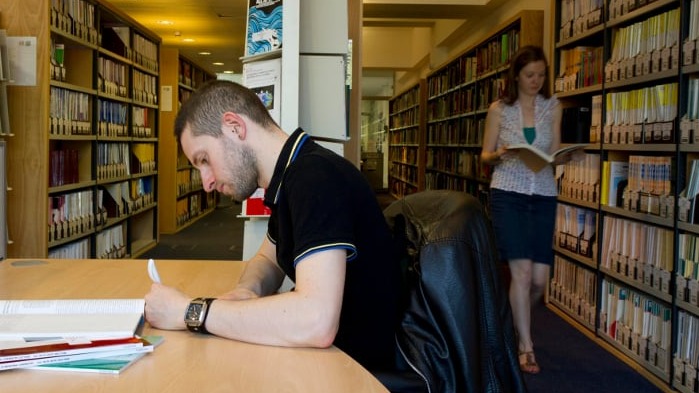
Why study with us?
By providing world-class expertise and support to students at The Institute of Cancer Research, we hope to advance cancer research and clinical practice not only within our organisation, but throughout the field.
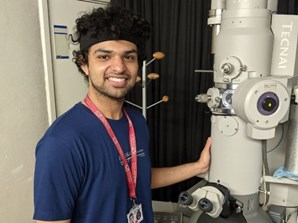
Student Profile
Varun Ramaswamy is a third-year PhD student at the ICR. He is working on a collaborative project between the Division of Cancer Therapeutics and the Division of Structural Biology that aims to solve the 3D structure of a protein called HSET using cryo-electron microscopy and complementary biophysical techniques.
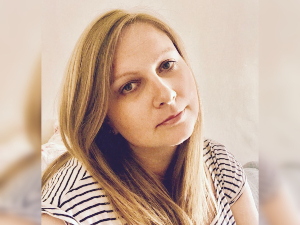
Employee Story
Head of Research Support (corporate role) Dr Becky Cook Dr Becky Cook is Head of Research Support at The Institute of Cancer Research. She oversees our large strategic grant applications and is supporting the ICR's next submission to the Research Excellence Framework (REF), which is the definitive government evaluation of the quality and impact of research at UK universities.
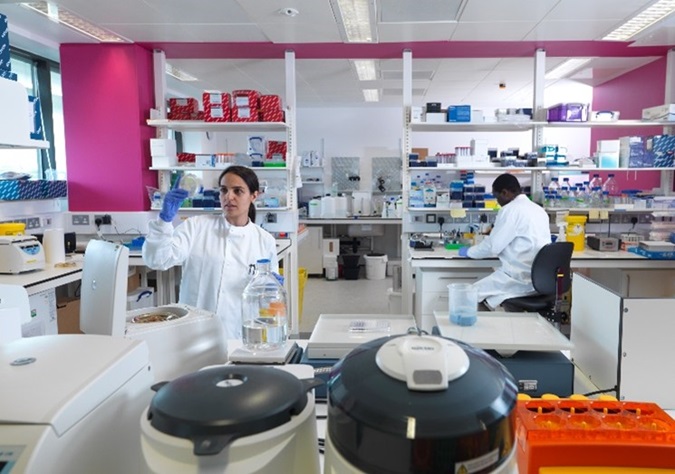
Support moving to the UK
Whether you're a student or a full time employee, you'll get a variety of social, welfare and accommodation benefits and advice, to help your move to the UK.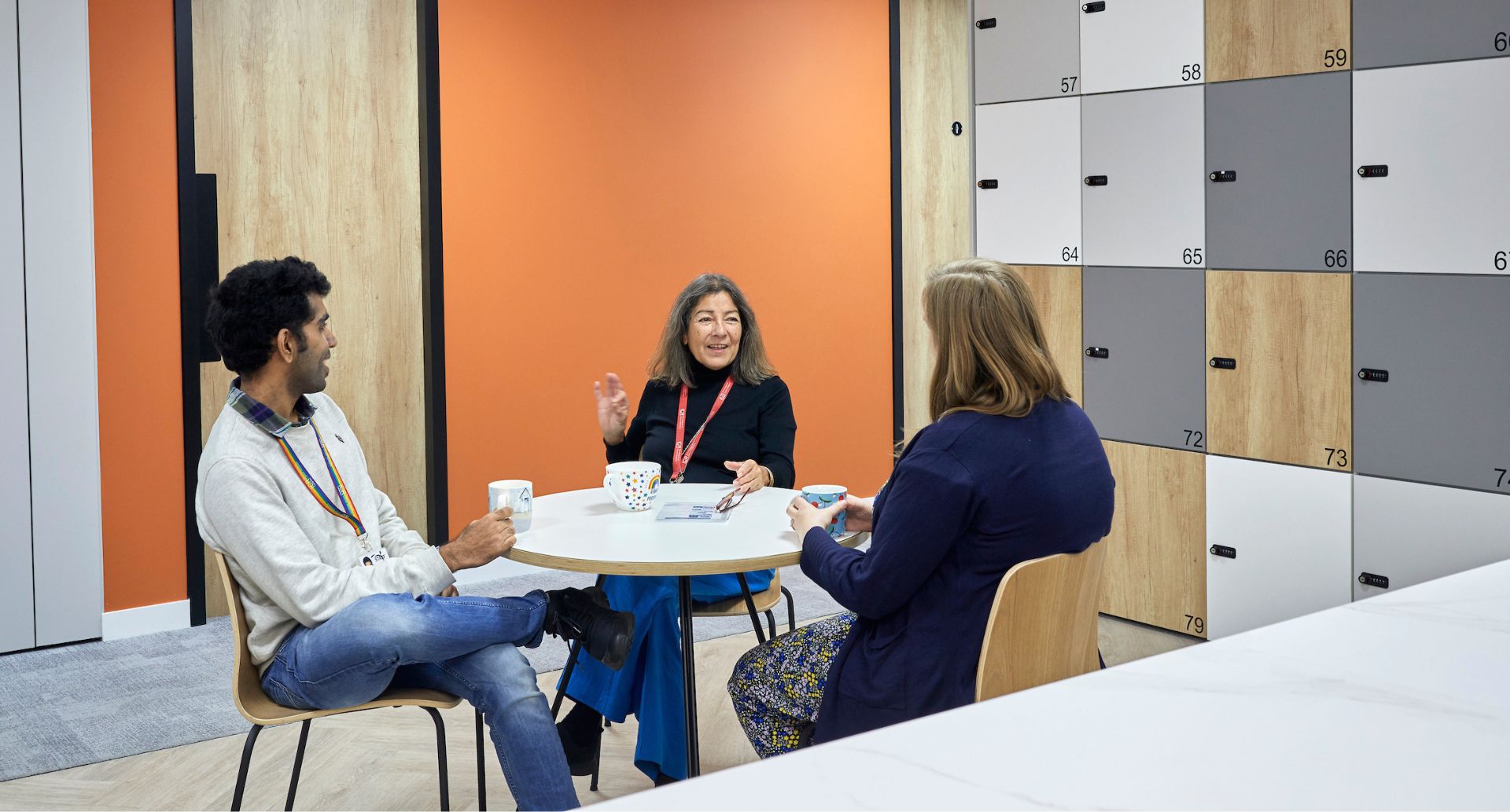
Working life and benefits
As a world-leading cancer research organisation, we are a dynamic and exciting place to work - with various benefits and support if you’re moving to the UK.
Current openings
We offer a fantastic working environment, great opportunities for career development and the chance to make a real difference for cancer patients. We aim to recruit and develop the best – with positions for postdocs, scientists and clinicians, and professional or administrative staff - see the latest below:
Research Group Leader, ICR Clinical Trials and Statistics Unit (ICR-CTSU)
Department/Directorate Information: Division of Clinical Studies - Clinical Trials and Statistics Unit (ICR-CTSU) The ICR-CTSU is a Cancer Research UK-funded, internationally recognised methodologist led clinical trials unit, providing cancer-focused clinical trial research expertise. We lead pioneering, efficient, high-quality, and impactful trials across the phases. Our expertise ranges from experimental medicine early phase studies exploring biological efficacy to trials which may deliver widespread change to routine practice, underpinned by applied methodology to drive forward clinical trial innovation. See our clinical trials Role Summary The Group Leader will lead a component of ICR-CTSU’s portfolio of clinical trials research. The post holder will join an existing faculty and seek to further develop and grow the portfolio in line with ICR-CTSU’s overall strategy; taking responsibility for a number of ongoing trials as well as the development of new trials. There will be the opportunity to develop and grow a team including the potential for a Postdoctoral Training Fellow and/ or a Trial Manager. We seek an experienced statistician / biostatistician with a strong research interest in clinical trials methodology and a passion for direct involvement in the oversight and leadership of academic clinical trials. The successful candidate will work closely with the Director of ICR-CTSU to further enhance the Unit’s internationally recognised strength in clinical trial design, conduct and analysis. The post holder will be expected to make a substantial independent intellectual contribution to clinical trials projects and be proactive in leading and contributing to broad initiatives that enhance the overall effectiveness of ICR-CTSU. The appointee will contribute to the overall scientific life of the ICR including the newly established ICR/Royal Marsden Hospital’s Centre for Trials and Population Data Science, by providing mentorship to more junior colleagues and acting as an academic leader. We seek an individual who will work closely and collaboratively with other faculty/Group Leaders at the ICR and with international/national key opinion leaders to extend the breadth and depth of ICR-CTSU’s biologically rich clinical trials portfolio. In partnership with clinical opinion leaders, this individual will generate research funds to conduct and deliver clinical trials research at the international forefront. Presentation at national and international conferences, production of top-quality research outputs and substantial professional contribution to wider clinical trial network bodies are expected. Enthusiasm for team-based science in a collaborative interdisciplinary environment is essential. The appointment will be based on track record and the ability and willingness to engage in team science. The successful appointee will have access to ICR’s successful PhD training programme and core facilities. Key Requirements Higher degree (MSc or PhD) in medical statistics/biostatistics or an allied field (e.g. public health, epidemiology, data science) with relevant work experience Significant experience as a clinical trials, medical statistician or bio-statistician within the academic or commercial sector; a blend of both would be highly desirable A desire to apply existing and novel statistical methods to the requirements of a diverse range of statistical problems A broad understanding of cancer research Ability to lead a Clinical Trials Unit based research group As part of your online application, you will be required to upload your full CV which will pre-populate your application form, you will also be asked to attach the following documents and failure to do so will mean your application cannot be considered on this occasion: Lists of major publications, achievements, research grants and distinctions. A PDF of a maximum of five key publications, or other research outputs (e.g. patents) that best demonstrate previous productivity or a single document giving hyperlinks to these outputs. You must also complete the personal statement section of the application form in the format of a cover letter including the names and contact details of three academic referees Joining as a Group Leader, you will be given outstanding support to help you to continue to develop in your career. Along with a start-up package of funding, you will also have access to resources to establish your group, including support for recruiting key group members, such as PhD students and postdoctoral researchers. We encourage all applicants to access the job pack attached for more detailed information regarding this role. For an informal discussion regarding the role, please contact Professor Emma Hall ([email protected])
Postdoctoral Training Fellow in Hypoxia and Leukaemia Biology
Under the guidance of Professor Kamil Kranc, we are seeking to recruit a Postdoctoral Training Fellow to pursue therapeutic targeting of the cellular oxygen-sensing system in order to eliminate leukaemic stem cells in acute myeloid leukaemia (AML) and develop effective treatments for this devastating disease. We have identified inhibition of hypoxia-inducible factor (HIF) hydroxylases (PHDs) as a promising non-toxic strategy to target leukaemic stem cells by modulating HIF signalling (Lawson/Holt-Martyn et al., Nature Cancer, 2024; Vukovic et al., Journal of Experimental Medicine, 2015; Vukovic et al., Blood, 2016). The postholder will investigate how inactivation of PHDs and related enzymes impacts AML biology, identify AML subtypes sensitive to these interventions, evaluate novel small-molecule inhibitors in vivo, and discover synthetic lethal vulnerabilities and resistance mechanisms to inform optimal combination strategies and overcome therapeutic resistance. About you The successful candidate must have: PhD in hypoxia biology, biochemistry, cell biology, molecular biology, stem cell biology, oncology or chemical biology. Significant experience in hypoxia biology/biochemistry, stem cell biology, and cancer research. Previous postdoctoral experience in hypoxia and/or leukaemia biology. Candidates who are nearing completion of their PhD may apply, but confirmation on awarded PhD is required within 6 months of employment. The ICR has a workforce agreement stating that Postdoctoral Training Fellows can only be employed for up to 7 years as PDTF at the ICR, providing total postdoctoral experience (including previous employment at this level elsewhere) does not exceed 7 years. For general information on Postdocs at The ICR, more information can be found here. Department/Directorate Information: The Haemato-Oncology Group specialises in understanding and targeting leukaemic stem cells, which are responsible for AML initiation, disease progression, relapse, and resistance to conventional therapies. Our group focuses on discovering cures for acute myeloid leukaemia with an aim to identify novel therapeutic targets for selective elimination of LSCs, without disrupting normal haematopoiesis. What we offer A dynamic and supportive research environment Access to state-of-the-art facilities and professional development opportunities Collaboration with leading researchers in the field Competitive salary and pension We encourage all applicants to access the job pack attached for more detailed information regarding this role. For an informal discussion regarding the role, please contact Professor Kamil Kranc via email [email protected]
Postdoctoral Training Fellow in RNA and Leukaemia Biology
Under the guidance of Professor Kamil Kranc, we are seeking to recruit a Postdoctoral Training Fellow to work on therapeutic targeting of RNA modifications in acute myeloid leukaemia (AML). The successful candidate will investigate strategies to eliminate leukaemic stem cells and play a central role in developing curative treatments for this aggressive disease. Our recent work has demonstrated that inactivation of readers of the m6A mRNA modification represents a promising, non-toxic strategy for targeting leukaemic stem cells in AML (Paris et al., Cell Stem Cell, 2019; Mapperley et al., Journal of Experimental Medicine, 2021; Turner et al., eLife, 2022). Building on these findings, the postholder will explore the impact of disrupting the YTHDF family of m6A readers on AML biology, identify disease subtypes most responsive to this approach, test novel small-molecule inhibitors in vivo, and uncover synthetic lethal interactions and resistance mechanisms to guide rational combination therapies. About you The successful candidate must have: PhD in biochemistry, RNA biology, cell biology, molecular biology, stem cell biology, oncology or similar. Excellent verbal and written communication skills. Essential for communicating research, training others and drafting of reports or publications. Significant experience in RNA biology, stem cell biology, and cancer research. An excellent publication record with a track record of research excellence. Candidates who are nearing completion of their PhD may apply, but confirmation on awarded PhD is required within 6 months of employment. The ICR has a workforce agreement stating that Postdoctoral Training Fellows can only be employed for up to 7 years as PDTF at the ICR, providing total postdoctoral experience (including previous employment at this level elsewhere) does not exceed 7 years. For general information on Postdocs at The ICR, more information can be found here. Department/Directorate Information The Haemato-Oncology Group specialises in understanding and targeting leukaemic stem cells, which are responsible for AML initiation, disease progression, relapse, and resistance to conventional therapies. Our group focuses on discovering cures for acute myeloid leukaemia with an aim to identify novel therapeutic targets for selective elimination of LSCs, without disrupting normal haematopoiesis. What we offer A dynamic and supportive research environment Access to state-of-the-art facilities and professional development opportunities Collaboration with leading researchers in the field Competitive salary and pension We encourage all applicants to access the job pack attached for more detailed information regarding this role. For an informal discussion regarding the role, please contact Professor Kamil Kranc via email on [email protected]
Digital Manager – Website Lead
About the Role We’re looking for a talented Digital Manager to take ownership of the ICR’s main website and lead its evolution. You will manage, optimise and grow our website following its major redevelopment on the latest version of the Sitefinity CMS. This is a pivotal, highly collaborative role at the heart of a busy directorate that tells the ICR’s story and leads our fundraising. Key Responsibilities As our Website Lead, you will: Oversee daily management, development and optimisation of the ICR’s main website — including content, SEO/AEO and technical improvements Work closely with internal partners to develop new pages, sections and features Lead a programme of ongoing content review and user training across the organisation Produce regular website analytics reports and deliver insight-driven recommendations Ensure consistent branding, accessibility and outstanding user experience Manage a Digital Communications Officer (job share, 1.2 FTE) and help recruit and line-manage a new Website Developer Plan and prioritise technical projects with our Digital Services (IT) team About You This is a fantastic opportunity for someone who combines technical understanding with creativity, editorial judgement and a passion for delivering exceptional digital experiences. You’ll bring: Strong experience managing and publishing content within a CMS (Sitefinity experience is a bonus) A solid understanding of HTML and confidence working with developers and IT colleagues Experience overseeing the day-to-day running of a large website Skills in analysing website performance using tools like GA4, Google Tag Manager or Matomo Excellent organisational ability and the skills to manage multiple concurrent projects Strong written and verbal communication skills Experience managing or mentoring others (highly desirable) A proactive, collaborative approach to working across teams Optional but advantageous: experience with Adobe Creative Cloud tools, editorial content review, and training non-technical users What We Offer A supportive and collaborative working environment. Opportunities for professional development and career progression. Competitive salary and pension About the Development and Communications directorate The Development and Communications directorate tells the ICR’s story and focuses on income generation. The ICR is world-renowned for its outstanding cancer research – and it deserves communication to match. We believe that communicating effectively about the ICR's work can help us build on our successes – attracting donors and supporters, the best staff and students, commercial partners and collaborators. We encourage all applicants to access the job pack attached for more detailed information regarding this role. For an informal discussion regarding the role, please contact Eleanor Howard, Head of Strategic Marketing via email on [email protected].
